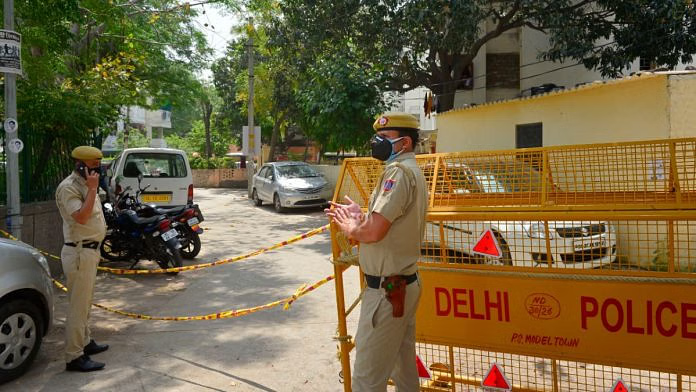Now Reading: Lajpat Nagar Double Murder: Teen Walks into Scene of Mother’s Killing, Tragedy Rooted in Personal Grudge
-
01
Lajpat Nagar Double Murder: Teen Walks into Scene of Mother’s Killing, Tragedy Rooted in Personal Grudge
Lajpat Nagar Double Murder: Teen Walks into Scene of Mother’s Killing, Tragedy Rooted in Personal Grudge

A chilling double murder in Delhi’s Lajpat Nagar has left the city shaken. A 14-year-old boy reportedly walked in on the brutal killing of his mother and tried to hide in the bathroom, only to become the second victim. Investigations have revealed that the attacker held a personal grudge against the mother over a past scolding, turning a domestic disagreement into a horrifying crime.
What Happened in Lajpat Nagar
The incident occurred at a residential flat in the Lajpat Nagar area, where the accused, known to the victims, allegedly entered the house with the intent to confront the woman. According to initial findings, he was carrying a weapon and acted alone. The situation turned violent, resulting in the death of both the woman and her teenage son.
Boy Walked into a Tragic Scene
The minor, who had reportedly just returned home from school or an outing, unknowingly walked into the crime scene. On witnessing the attack, he attempted to hide in the bathroom, but the assailant found and killed him too. Police say his reaction was likely driven by fear and shock, typical for a child caught in such an unimaginable situation.
Motive Traced to a Personal Grudge
Investigators have indicated that the accused had been harboring resentment towards the woman due to a scolding or disagreement in the past. While the details are still under verification, it appears to have been a personal motive rather than a robbery or planned crime. The police are now piecing together the timeline and recovering forensic evidence from the scene.
Impact on the Neighbourhood and Beyond
The double murder has disturbed the otherwise quiet residential locality. Neighbours, visibly shaken, spoke of the victims as a quiet and well-mannered family. Security concerns have grown among residents in Delhi and even in Tier 2 cities like Jaipur, Bhopal, and Lucknow, where similar densely populated colonies exist and face rising concerns over personal safety and unchecked visitor access.
Concerns Around Domestic Security
This tragic case highlights the dangers of unresolved personal conflicts and the potential for violence even within familiar social circles. It also raises questions around mental health, conflict resolution, and security awareness—issues that are often overlooked in close-knit housing societies across urban and semi-urban India.
Conclusion
The Lajpat Nagar double murder serves as a sobering reminder of how deep-rooted grudges can escalate into violence. For families in Tier 2 cities and metros alike, it underscores the need to strengthen both emotional well-being and home security measures. As the investigation continues, the focus now shifts to justice for the victims and preventing such tragedies in the future.

























